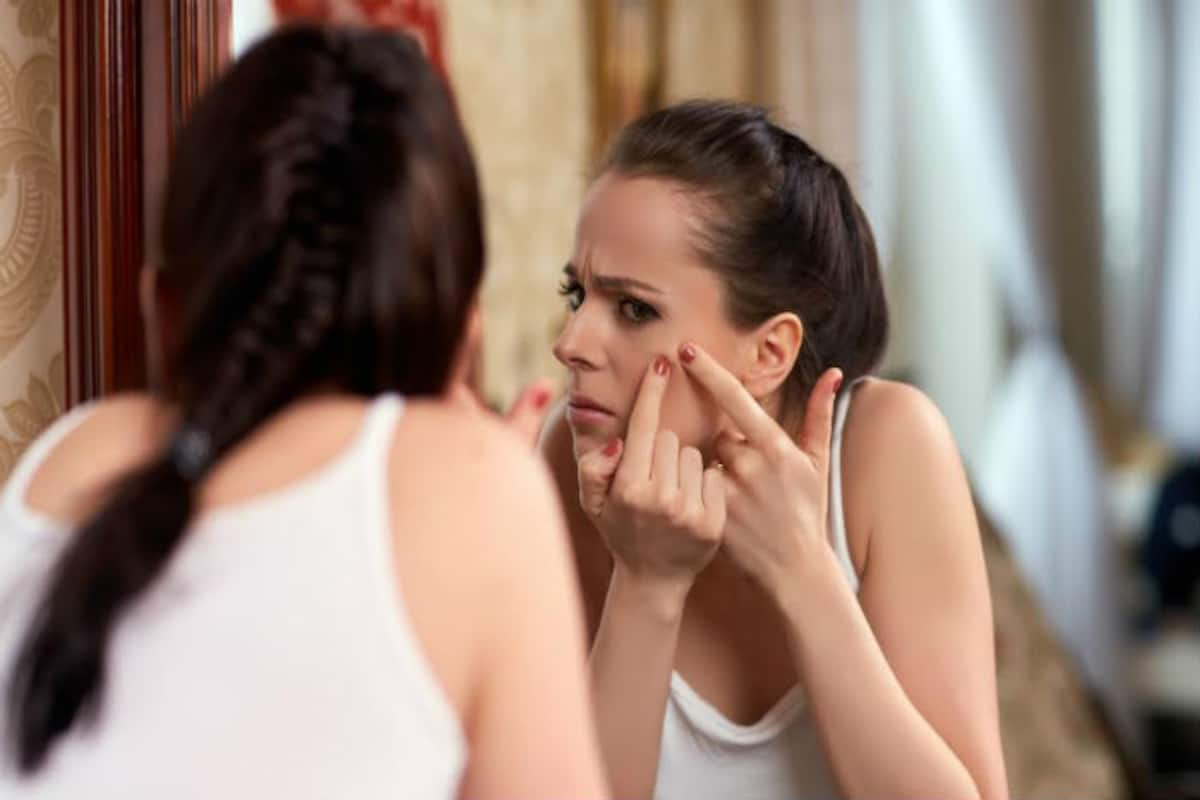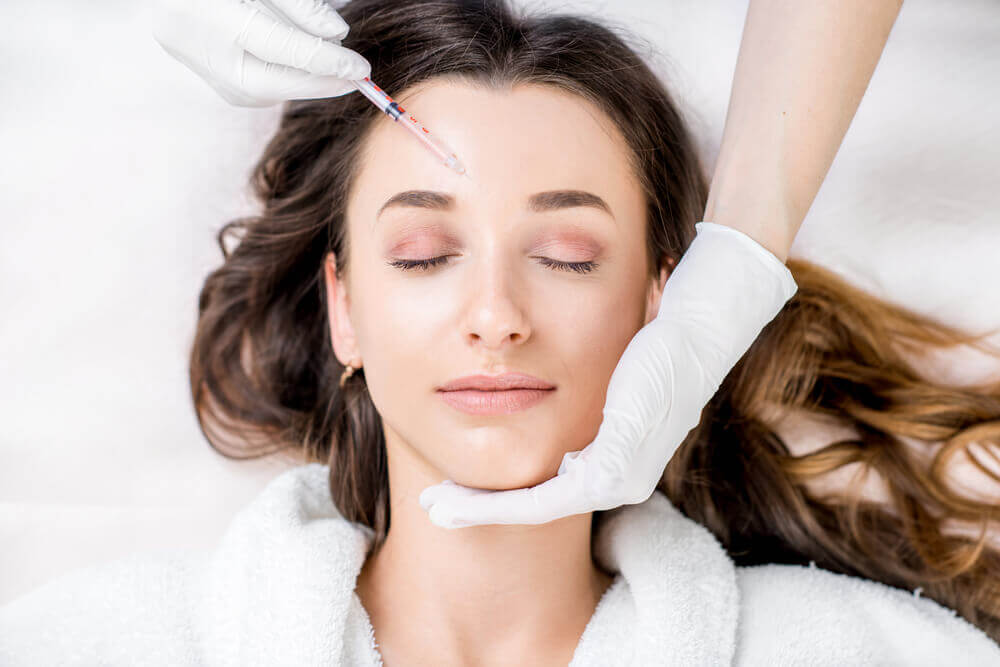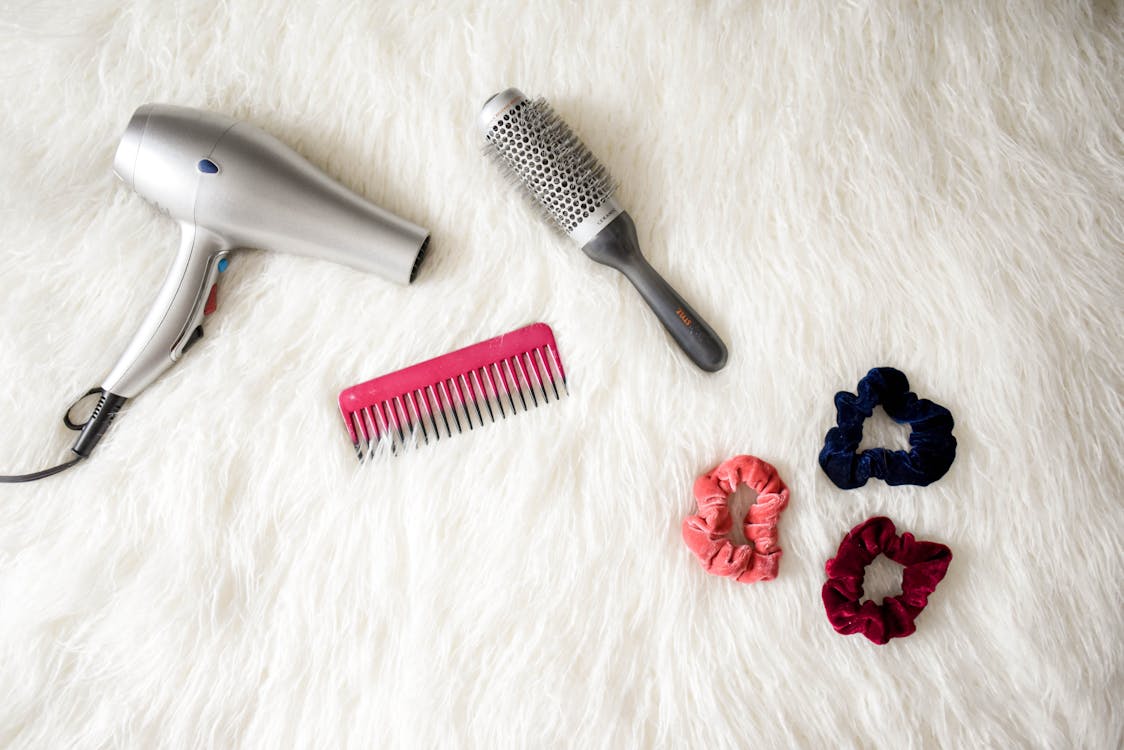Table of Contents
Introduction
Essentially, a pimple is a kind of clogged hair follicle, commonly known as pore, in the skin. It occurs when excess sebum and/or dead skin cells get trapped in the pores of the skin, leading to infection and swollen, red lesions filled with pus. Although the highest amount of breakouts happen at the time of puberty for both men and women, they can occur at any age. However, why some people are more affected by pimples than others is still largely unknown.
There are a number of reasons that pimples or acne occur, and there are a number of methods to prevent and cure them as well. You will find detailed information on all of them in this article.
What causes pimples
As mentioned earlier, pimples occur when pores of your skin get clogged by sebum or dead skin cells. This occurs for various reasons –
The sebaceous gland infection:
The sebaceous glands are tiny skin glands found inside the pores of the skin, all over the body, except the palms of the hands and soles of the feet; that secrete sebum, a waxy or oily substance that lubricates the skin and hair. While the sebum is created inside the skin, new skin cells are constantly created and old outer layers of the skin are shed. At some unfortunate times, these dead cells are not cleared off and they stay inside the pores stuck in the sticky sebum, causing a blockage.
Bacterial infection:
Where sebum and dead skin cells accumulate and block a pore, this gives rise to the growth of some undesirable bacteria, including Propionibacterium acnes (P. acnes), a slow-growing bacterium linked to acne. Propionibacterium acnes usually exist harmlessly on our skin, but if they find the right conditions, they can reproduce more rapidly and cause trouble. They feed off of the sebum and produce an immune response leading to skin inflammation and spots. Even so, pimples are not contagious.
Yeast infection:
Pityrosporum, also known as Malassezia or folliculitis, happens when a pityrosporum yeast enters the hair follicles and multiplies, triggering an itchy eruption of tiny, itchy, rounded pimples, that resembles acne. Most people already contain this yeast on their body, but when too much of it develops, it can create an acne problem. Humid and sweaty environments, clothes made of synthetic fibres, and the use of oily skin products can make this even worse.
- Hormonal factors:
- Testosterone sensitivity: Researchers have found a direct correlation between testosterone levels and activity in the sebaceous glands, leading to clogged pores and chance of acne.
- Rise in androgen level: Androgen is a type of hormone, which grows in amount with the beginning of adolescence. In women, it gets converted into estrogen. Rising androgen levels cause the oil glands under the skin to grow, resulting in more sebum production. Excessive sebum can break down cellular walls in the pores, causing bacteria to grow.
Some other possible factors:
Some researches show a link between pimples or acne and some medications that contain androgen and lithium, cosmetics not suited to a particular skin, heredity, stress, menstruation, and diet.
How to effectively avoid pimples
Prevention is of course, better than cure. Now that you understand what causes those breakouts on your face, it is smart to learn how to avoid triggering those causes, at least as much of it is under your control.
Clean your face properly:
Washing your face twice daily to remove impurities, dead skin cells, and extra oil from your skin’s surface is the first prevention against pimples. However, washing more than twice may dry your face out and may do more harm than good. Remember, always wash your face with warm water, and never hot. Use an alcohol-free, mild cleanser and use it gently over your skin with your hand or a soft brush. Do not ever scrub your skin harshly, it causes more inflammation and makes acne worse. Also, never rub your towel on your skin while drying. This also causes more irritation to the skin. Pat dry instead.

Learn about your own skin type:
Any type of skin can attract pimples at some point. Nevertheless, oily and combination skin produce more oily sebum than others, leading to a higher chance of pimples. Combination skin has both oily and dry areas on the skin – usually on the face; the forehead, nose, and chin, also known as the T-zone, is more oily for this type of skin.
Learn about the skin type you have so that you can choose the right skincare products for yourself. Always choose a product which does not contain oil. If your skin is already oily, you can choose non-comedogenic products that are formulated to prevent the blockage of pores.
Keep your skin properly moisturized:
Moisturizing your skin daily, especially after washing, is very important as dry skin also causes pimples. Regardless, remember that moisturizers that contain oil, synthetic fragrance, or other chemicals may irritate your skin, giving rise to pimples rather than preventing them. In order to help prevent pimples, use fragrance-free, non-comedogenic moisturizers after you wash your face or when your skin feels dry. Although, the best method is always using natural products as much as you can. Yogurt, honey, aloe vera gel etc. are great natural moisturizers for any type of skin.
Stay hydrated:
As you can understand from the previous point, dry skin causes more pimples. Also, if you are dehydrated, your body may signal your skin’s oil glands to produce more oil which may lead to pimples. Dehydration also makes your skin dull, boosting inflammation and redness. To keep your body well-hydrated, never stay off the water whenever you are thirsty. Drinking 3-4 litres of water every day is a good practice. Drink more after exercise, if you’re pregnant or breastfeeding, or you spend time in a hot, humid environment.
Control the use of makeup:
The chemicals in makeup products are never good for your skin. Especially if you use makeup over pimples, you risk clogging the pores further, making your pimples worse. When you do have to wear makeup, avoid greasy, heavy foundation, with dyes and chemicals; and use products that are non-comedogenic, sheer, and fragrance-free. Also, make sure that you wash off your makeup before going to bed every night.
Check the hair products:
What you put on your hair also drips to your face. So if you use fragrances, oils, pomades, or gels on your hair, they may get on your face and block your pores. Use a gentle shampoo and conditioner.
On top of this, oily hair can cause oily skin; so it is important that you wash your hair often. When you haven’t washed it, keep it away from your face.
Avoid touching your face:
Your hands do all the heavy jobs in the day and attract a lot of dirt, grime, and bacteria. Every time you touch your face with a hand that unclean, these get transferred to your face and can lead to blocking your pores as well as irritate the already inflamed parts of your face. So wash your hands frequently and try to keep the face-touching to a minimum.
Do not pop your pimples:
It may be really tempting to touch and pop those itchy or bumpy pimples, but this only results in bleeding, more infection, and more importantly, this can leave a scar. So control this temptation for your own good.
Keep your facial care products clean:
Anything you touch your face with can be troublesome for you, including the facial care products like facial sponges, makeup brushes etc. Make it a habit to clean them regularly with mild soap and water. Also, make sure that the brushes are dry before you use them.
Limit exposure to UV:
Ultraviolet rays can increase inflammation and redness in your skin, and also can give rise to post-inflammatory hyperpigmentation (dark discolouration). If you have a lighter skin tone, because of less melanin on your skin, it is more sensitive to UV rays. Some acne medications also make your skin sensitive to this. So limit your exposure to the sun as well as artificial tanning. Wear protective clothing, sunglasses, and a broad-brimmed hat every time you go out in the sun. Apply a broad-spectrum non-comedogenic sunscreen with 6% zinc oxide or higher and SPF 30 or higher at least 20 minutes before sun exposure.
Control your diet:
It is not conclusive yet how much diet connects with pimples. In any case, a healthy body leads to healthy skin. To avoid greasy food and junk food and add more fresh fruits, vegetables and whole grains to your diet. Dairy products and foods high in processed sugar may also trigger acne, so avoid these.
Reduce stress:
As stated before, stress causes breakouts. Try exercising, yoga, meditation, massage, aromatherapy etc. to get rid of stress, and cut down on factors that cause stress for you.
Consult a certified doctor before taking hormone pills:
Hormonal medications like contraceptive pills and Spironolactone, a medication often used to treat high blood pressure, help in acne prevention and acne treatment; but not all of them are suitable for everybody, and more importantly, they have side effects. So always consult a medical professional before taking them.

Acne treatment
If you do end up having acne, there are some ways to eliminate them.
- Over-the-counter medications: Acne treatment creams or serums can reduce breakouts occurring in particular areas. Most of them have ingredients such as benzoyl peroxide, salicylic acid, glycolic acid, or lactic acid, which curb bacteria and dry your skin. However, the appropriate amount to apply varies and overusing them can dry your skin. So start small.
- Topical retinoids: These are derived from Vitamin A and they prevent the clogging of pores, and therefore, the formation of pimples.
- Antibiotics: Antibiotics help reduce inflammation and bacteria on the skin, but they are often prescribed and using them for a long time may make the bacteria resistant to the same, leading to the opposite effect. So consult your dermatologist for the dosage and use directions.
- Consider laser treatments: Laser therapy is often used for acne treatment in Melbourne. A dermatologist or esthetician can provide these therapies, which aim to reduce the presence of P. acne bacteria on the skin. There are side effects of this kind of treatment though, so a thorough check-up for your compatibility with it, and most importantly, choose only a certified professional for the procedure.
Conclusion
In this day and age of technological advancement, almost everything is treatable, and acne is too. Follow the instructions to avoid it, and make sure you consult only an authentic and licensed acne treatment clinic in Melbourne to get any kind of treatment procedure. Stay safe, stay flawless!




